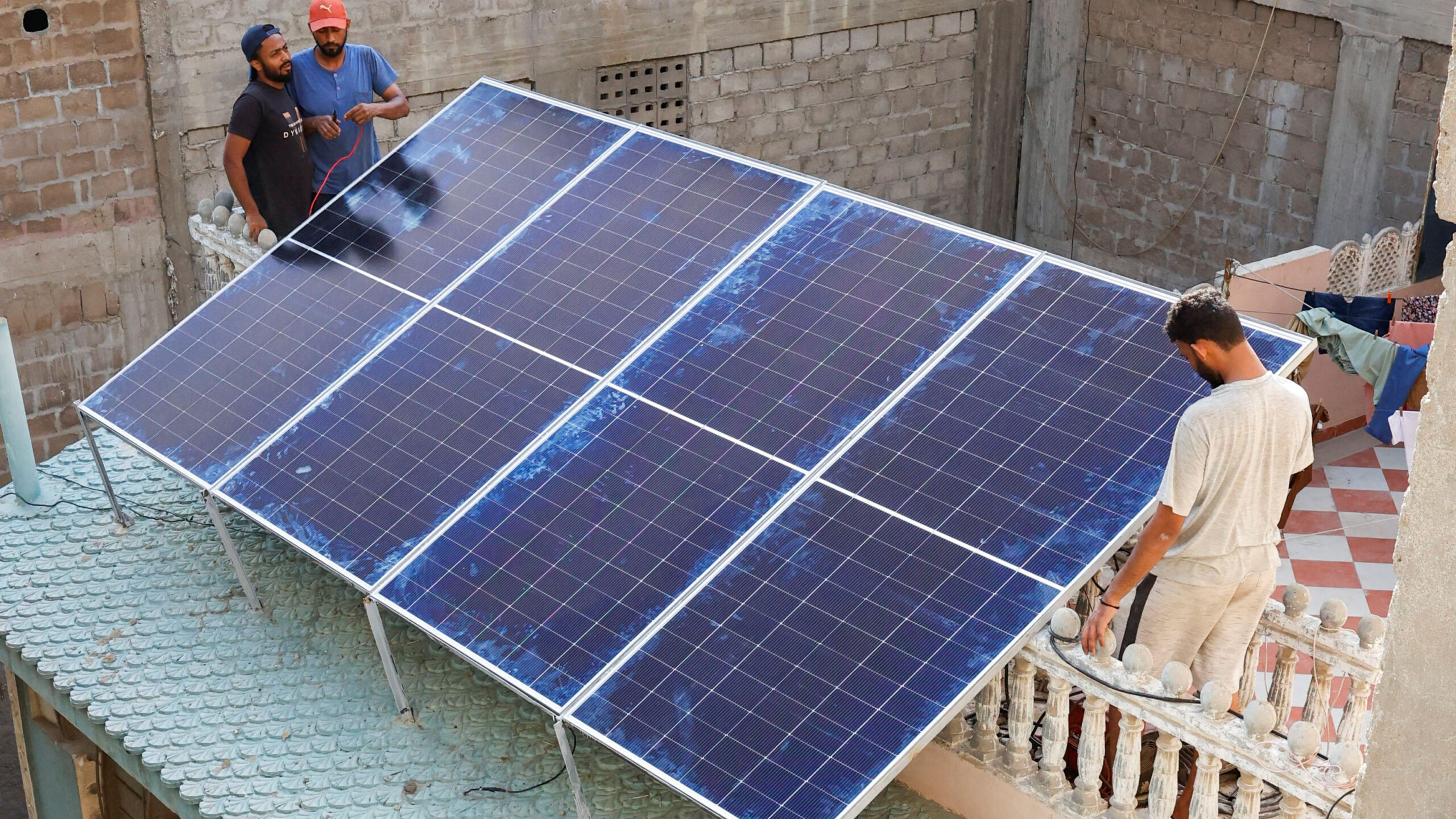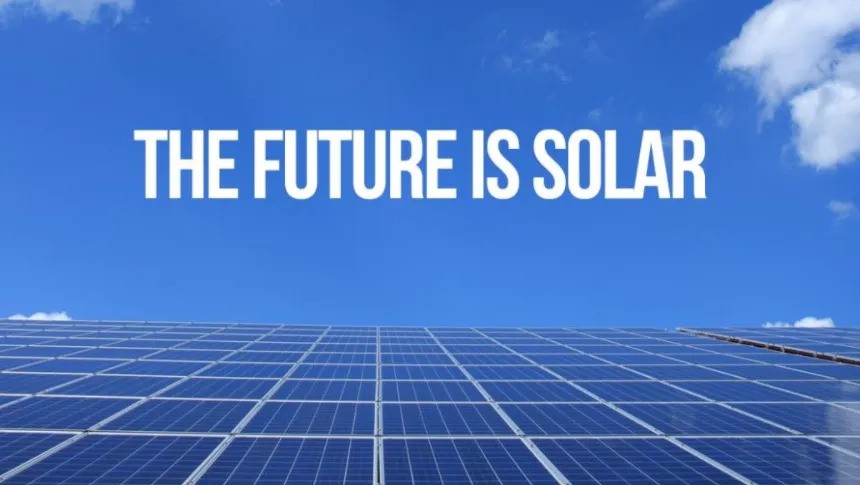Solar energy in Pakistan is rapidly growing as an alternative to conventional electricity sources. With frequent power shortages and rising energy costs, Pakistan is turning to solar power as a sustainable and cost-effective solution. The country has enormous potential for solar energy due to its geographic location, receiving an average of 8-10 hours of sunlight daily. This article explores the current status, benefits, challenges, and future prospects of solar energy in Pakistan.
Current Status of Solar Energy in Pakistan
Pakistan has made significant progress in adopting solar energy in recent years. The government, private businesses, and individuals are investing in solar power to reduce their dependence on expensive fossil fuels. Some key developments include:
- Quaid-e-Azam Solar Park in Bahawalpur, Punjab, one of the largest solar farms in Pakistan, with a capacity of 1,000 MW.
- Increasing use of solar panels in homes, businesses, and industries to reduce electricity costs.
- Government incentives such as net metering, allowing people to sell excess solar energy back to the grid.
- Solar energy solutions for rural areas where grid electricity is unavailable or unreliable.
Future of Solar Energy in Pakistan
The future of solar energy in Pakistan looks highly promising due to several key factors. With continuous advancements in solar technology and decreasing installation costs, more homeowners and businesses are expected to transition toward solar power. The affordability and efficiency of solar panels are improving, making it a viable energy solution for a larger segment of the population.
The Pakistani government has recognized the potential of solar energy and is actively working on policies and incentives to promote its adoption. Initiatives such as net metering, tax exemptions on solar equipment, and subsidies for residential and commercial solar installations are making renewable energy more accessible. These steps are crucial in reducing the country’s reliance on fossil fuels, which are not only expensive but also contribute to environmental pollution.
If Pakistan continues to invest in solar power infrastructure, it has the potential to emerge as a regional leader in renewable energy. While increasing solar energy production, the country can significantly lower its electricity costs, reduce power shortages, and improve overall energy security. Furthermore, a stronger focus on solar energy will contribute to a cleaner environment, reducing carbon emissions and combating climate change.
With the right policies, technological advancements, and public awareness, Pakistan can successfully harness its abundant sunlight to create a sustainable and energy-independent future.
Why Solar Energy is Important for Pakistan
Pakistan faces an energy crisis due to a shortage of power supply and high electricity demand. Solar energy provides a reliable and renewable solution to these problems. The main reasons why solar energy is crucial for Pakistan include:
- Abundant Sunlight: Pakistan receives 300+ sunny days per year, making it ideal for solar power generation.
- Reducing Electricity Costs: Solar panels help households and businesses save money on electricity bills.
- Energy Independence: Less reliance on imported fossil fuels means better energy security.
- Environmental Benefits: Solar power is clean energy, reducing air pollution and carbon emissions.
- Economic Growth: The solar industry is creating jobs in installation, maintenance, and sales.
Challenges of Solar Energy in Pakistan

Despite the increasing adoption of solar energy, several challenges hinder its widespread use in Pakistan. These challenges include high initial costs, lack of awareness, expensive battery storage, quality issues, and weather dependence. Addressing these problems is crucial for maximizing the country’s solar potential.
1. High Initial Cost
One of the biggest obstacles to solar energy adoption in Pakistan is the high upfront investment required to purchase and install a solar system. While the long-term savings on electricity bills make solar power a cost-effective choice, the initial cost of solar panels, inverters, batteries, and installation remains a barrier for many homeowners and businesses.
- A typical solar system for a small home can cost PKR 400,000 – PKR 800,000, while larger systems for businesses can cost millions.
- Hybrid solar systems (with batteries) are even more expensive due to costly storage solutions.
- Many consumers cannot afford the upfront payment, and bank financing options are still limited.
Although net metering allows users to sell excess electricity to the grid, it requires an initial investment, and many households lack the financial resources to install solar systems without government support or financing programs.
2. Lack of Awareness
Many people in Pakistan are still unaware of the benefits of solar energy or have misconceptions about its feasibility. A lack of education and awareness campaigns slows down the transition to renewable energy.
- Some people believe that solar energy is unreliable or does not work efficiently in all regions.
- Businesses and homeowners do not fully understand how solar energy can reduce electricity costs over time.
- Many rural communities lack access to information about government incentives, such as tax benefits and net metering.
The government and private solar companies need to invest in awareness campaigns, educate the public on long-term savings, and provide easy financing options to encourage adoption.
3. Battery Storage Costs
Solar panels only generate electricity during daylight hours, which means that for continuous power supply at night or during cloudy days, a battery storage system is required. However, solar batteries are expensive, making them an additional burden for consumers.
- Lithium-ion batteries, which are the most efficient, cost between PKR 150,000 – PKR 500,000, depending on capacity.
- Cheaper lead-acid batteries require frequent replacement, adding to long-term costs.
- Without batteries, solar panel users cannot store excess electricity, forcing them to rely on the national grid during nighttime.
Battery storage technology is improving, but battery prices remain high. Government subsidies or low-interest financing could make solar batteries more accessible.
4. Quality Issues
The solar market in Pakistan is filled with both high-quality and low-quality solar panels, inverters, and batteries. Many consumers unknowingly purchase substandard products that do not perform efficiently or fail within a few years.
- Counterfeit and low-efficiency panels flood the market, leading to poor energy production.
- Unqualified installers often provide improper installations, reducing system performance.
- Lack of maintenance services results in lower efficiency over time.
To tackle this issue:
- The government should regulate the solar industry to ensure that only high-quality panels are imported or manufactured.
- Consumers should purchase from certified vendors and ensure proper installation from trained professionals.
- Companies should offer warranties and after-sales services to maintain system efficiency.
5. Weather Dependence
Although Pakistan receives abundant sunlight, solar power generation can still be affected by weather conditions.
- Cloudy or rainy days reduce solar energy production, leading to lower efficiency.
- Dust and pollution in urban areas can cover solar panels, decreasing their ability to absorb sunlight.
- In winter months, shorter daylight hours result in less energy generation compared to summer.
To counter these issues, consumers should:
- Install high-efficiency solar panels that can generate power even in low-light conditions.
- Regularly clean solar panels to remove dust and dirt.
- Use hybrid systems with batteries or backup grid connections to ensure continuous power supply.
Government Initiatives for Solar Energy in Pakistan
The Pakistani government has taken several steps to promote solar energy:
- Net Metering Policy – Consumers can sell extra electricity back to the grid.
- Duty-Free Imports – Import taxes on solar panels have been reduced to make them more affordable.
- Solar Projects – Large-scale solar power plants are being developed.
- Loan Programs – Banks offer financing options to help people buy solar systems.
Benefits of Solar Energy in Pakistan
1. Lower Electricity Bills
Installing solar panels allows homeowners and businesses to generate their own electricity, reducing their dependence on the grid and lowering monthly electricity costs.
2. No Load Shedding
Pakistan experiences frequent power outages due to demand exceeding supply. With solar energy, people can have uninterrupted power during blackouts.
3. Government Support
The Pakistani government is encouraging solar energy through tax exemptions, subsidies, and net metering policies to make solar installations more affordable.
4. Rural Electrification
Many villages in Pakistan lack access to electricity. Solar energy provides an independent solution to power homes, schools, and hospitals in remote areas.
5. Long-Term Investment
While solar panels have an initial cost, they last 20-25 years, making them a smart long-term investment.
How to Get Solar Energy in Pakistan?
If you want to install solar panels in Pakistan, follow these steps:
- Assess Your Needs – Calculate your monthly electricity usage.
- Choose the Right Solar System – Decide between on-grid, off-grid, or hybrid systems.
- Find a Reliable Solar Provider – Select a company with good reviews and quality products.
- Apply for Net Metering – If you want to sell extra electricity, register for net metering.
- Maintain Your Solar Panels – Regularly clean and inspect your system for the best performance.
Conclusion
Solar energy in Pakistan is an effective solution to the country’s energy crisis. It offers clean, cost-effective, and reliable electricity for homes and businesses. With government support and growing awareness, solar energy is expected to become a major part of Pakistan’s energy sector. Investing in solar power today can lead to a brighter and more sustainable future for the country.
Make the Switch to Solar Now!
Reduce your electricity bills and contribute to a greener Pakistan. Contact us today for a free consultation and find the best solar solution for your home or business!



